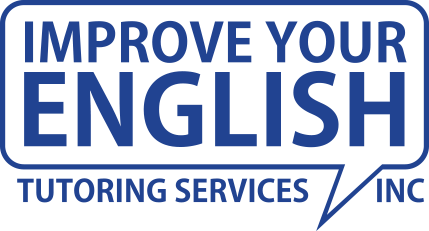
Sound impossible? It’s not. In fact, two of our sophomores recently did. Another one came very close. That’s three sophomores from Improve Your English with perfect or near-perfect scores.
Savannah (we’ve changed all the names) scored 800 Reading and 800 Writing (2400 total). Even more impressive? She did it early in her sophomore year, at the November 2015 test.
Mark scored 780 Reading, 800 Writing (2350 total). He took the test in January 2016 of his sophomore year.
A third sophomore, Paul, also scored 2400 this year.
Why did they succeed at such an early age? They had a good program to develop their reading and writing skills. Here’s how you can do it, too:
1. Start learning early.
Savannah started with Improve Your English in sixth grade; Mark and Paul started in seventh grade. An early start gives you enough time to develop your abilities slowly and steadily.
2. Work with a skilled tutor
You need a well-educated, experienced, and principled English teacher. Any tutor should
- love the English language—and transmit that love to you, the student.
- specialize in teaching English—so that she can quickly help you improve.
- know English grammar thoroughly—helping you lay the foundation for strong writing.
- teach classic literature with ease—leading you to read confidently and well.
The lessons that a skilled English tutor teaches last well beyond the SAT. They help you get higher grades in high school. They help you write better grant proposals in college. And they help you produce better job applications after graduation.
3. Work throughout the summer.
Savannah and Mark took 1-1 lessons with Improve Your English once weekly throughout June, July, and August. They made up missed lessons with extra tutoring sessions. Over a four-year period, that’s the equivalent of a full year of instruction. So it’s no surprise that they scored so well as sophomores.
4. Read classic literature
Their friends read easy books in school English class. But Savannah, Mark, and Paul read the Improve Your English curriculum: classic works by Twain, Poe, Dumas, Dickens, Shakespeare, and more. They mastered complex grammatical structures. They learned difficult vocabulary words. As a result, they found SAT reading passages much easier.
5. Read carefully, for meaning
Today, too many kids skim. They don’t look up unfamiliar words. They misunderstand plot, character, humor, and irony. But all three Improve Your English students learned how to read well. We taught them how to slow down and read more carefully. We forced them to understand subtle details. Once they did, their reading comprehension went up. Their SAT scores show it.
6. Study vocabulary weekly
From the beginning, all three students learned 10 new vocabulary words a week from their Improve Your English reading program. In 8th grade, we added words from a specialized SAT vocab list. Here, for example, is one of Savannah’s typical weekly word lists from 8th grade:
Words from IYE reading (a short story by Poe): paltry, debauch, expectorate, cadaverous, tenure, eddy, coalesce, boon, patent, quatrain
Words from SAT Vocab list: endorse, enigma, enmity, amity, inimical to, ephemeral, equivocal, erudite, esoteric, colloquy
That’s 20 new vocab words, every week, for a full year. If you learn a thousand words a year for several years, you might ace the SAT as a sophomore too.
7. Master English grammar
The SAT writing section tests formal English grammar. All three students spent 2-3 years studying the Improve Your English grammar program. This program teaches grammar step-by-step. It’s the same material that the great writer Winston Churchill used to master the English language.
Learning grammar is easy—if you start early and work slowly. But mastery takes time. You probably won’t even master subjects and verbs in a four-week cram session. You are much better off learning English grammar over 2-3 years. Taking time also teaches you how to apply grammar to your writing. The benefits reach beyond the SAT: knowing grammar will save you many embarrassing mistakes in essays, job applications, and company emails.
8. Wait to take practice tests until a few months before the test
Savannah didn’t start taking regular practice tests until three months beforehand. And she took about 12 total.
That’s right: You don’t need to take 100 tests to get a perfect score. Do you have a good foundation in reading and writing? Four practice tests are probably enough; seven are plenty; if you want to be sure, you can take more.
There are a few test-taking strategies you need to learn. But the students who get perfect scores don’t rely on tricks and tips. Sound training enables them to know the answers.
Conclusion
That’s the IYE philosophy for test prep: “Know the answer.” Master the material so that you don’t need to guess. With a foundation in vocabulary, grammar, and classic literature, you’ll be ready to know the answer. If our system worked for those three sophomores, it will work for you.
Do you want to start your journey toward mastery of the English language and SAT success? We offer a FREE diagnostic + FREE trial lesson. That’s 90 minutes of free evaluation and instruction. Plus you’ll get a free copy of our book on writing advice: Write it Right.
